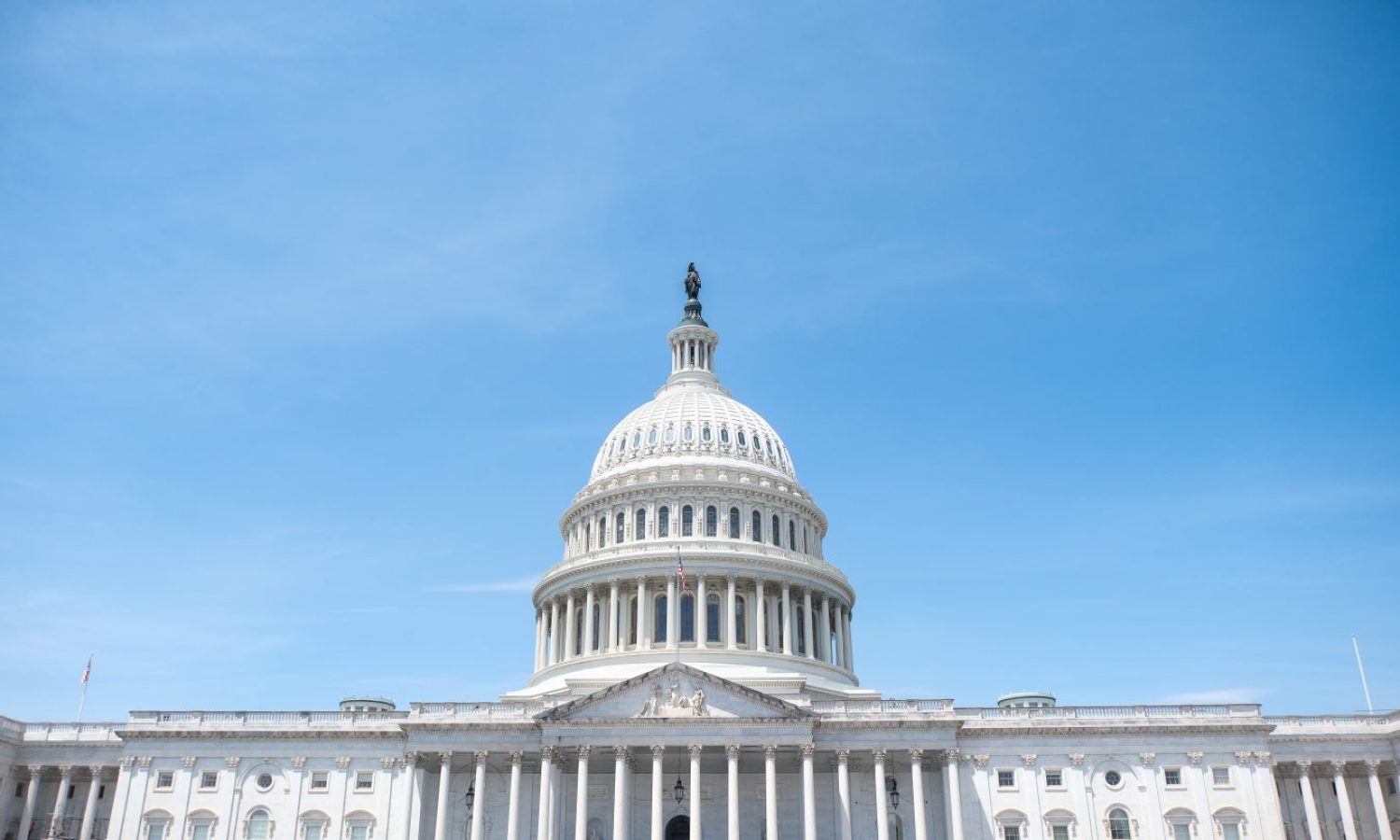i2Coalition Internet Infrastructure Policy Brief: May 2025
Your brief update on important Internet policy issues
OUTLOOK
Following days of tense intraparty negotiations, Speaker Mike Johnson (R-LA) led the House Republicans’ May 22 passage by a 1-vote margin (215-214) of a massive budget reconciliation bill that is central to achieving President Trump’s economic agenda, including the extension of 2017 tax cuts and an increase in the federal debt ceiling. All of the House Democrats and two Republicans voted against the bill. A number of changes were made to the bill to secure enough party-line votes for House passage, including accelerating the start date of Medicaid work requirements, and speeding up the phase out of clean energy investments and tax credits created under the prior Administration’s Inflation Reduction Act. Budget reconciliation action now turns to the Senate, where Majority Leader John Thune (R-SD) hopes to pass a Senate version by the July 4 holiday recess period. Significant revisions to the measure are expected, as a number of Republican Senators have expressed a range of concerns with the House’s reconciliation package, including its changes to Medicaid, cuts to food assistance, and its overall impact on increasing the federal deficit.
Returning to Washington from his high-profile overseas trip to several Middle East nations, President Trump accelerated tariff discussions with numerous key trading nations (e.g., the European Union, Canada, and China) and delayed the effective dates of certain tariffs to facilitate negotiation. That process was soon complicated by federal court rulings in late May that declared illegal many of the Trump Administration tariffs. Trump trade officials signalled in response that the Administration could explore alternative ways to impose tariffs using other legal authorities not tied to the pending litigation. The Trump Administration also immediately appealed the court decisions invalidating some of the tariffs. Ultimately, the cases may be reviewed by the U.S. Supreme Court. Negotiations between the U.S. and major trading partners are expected to continue while the legal cases challenging the President’s authority to impose the tariffs work their way through the court system.
TECH POLICY PRIORITIES
Intermediary Liability/Content Moderation. President Trump signed into law the TAKE IT DOWN Act, which prohibits knowingly publishing nonconsensual intimate imagery online and mandates, within one year, a notice and removal system by covered platforms to allow victims to request the prompt removal of NCII content. Senators Josh Hawley (R-MO) and Dick Durbin (D-IL) reintroduced the STOP CSAM Act, which includes provisions to remove Section 230 immunity for civil claims against online platforms for CSAM-related harms.
Federal Privacy. The Republican House Energy and Commerce Privacy Working Group continued outreach with stakeholders toward developing a framework for federal comprehensive consumer data privacy and security legislation. The Federal Trade Commission released a tentative agenda for its June 4 workshop exploring Big Tech exploitation of children and families online.
Copyright/IP. The House Judiciary IP Subcommittee Chair Darrell Issa (R-CA) released a discussion draft legislative framework for judicial blocking of foreign piracy websites and is seeking input from stakeholders. Chairman Issa plans to propose legislative text this summer. The Trump Administration dismissed and replaced with new appointees the Librarian of Congress and the Register of Copyrights. The former Register of Copyrights has filed a lawsuit challenging her dismissal. The dismissals came after the Copyright Office released a pre-publication version of a report examining the use of copyrighted materials in training AI models.
Antitrust/Competition. The Federal Trade Commission filed an amicus brief supporting the Department of Justice’s Revised Proposed Final Judgment (RPFJ) against Google, which aims to remedy antitrust violations by requiring Google to share parts of its search, user, and ad data with select competitors under strict privacy and security conditions. The House Judiciary Committee Republican members abandoned a controversial proposal to use the massive House reconciliation bill as a vehicle to consolidate antitrust authority under the Justice Department, shifting the consolidation effort to a future standalone bill. Broadband. Geoffrey Starks announced that the May open meeting of the Federal Communications Commission (FCC) was his last meeting as an FCC Commissioner. Senate Commerce Committee Chair Ted Cruz (R-TX) is working on legislation to reform the Universal Service Fund. As the Commerce Department continues assessment of the $42.5 billion BEAD program, some rural lawmakers are urging the Department to accelerate its review so that much-needed funding for broadband Internet access is not stalled for their constituents.
Find Out More…
For more in-depth updates on Internet policy, including issues that specifically impact your organization, please contact us about joining the i2Coalition.

